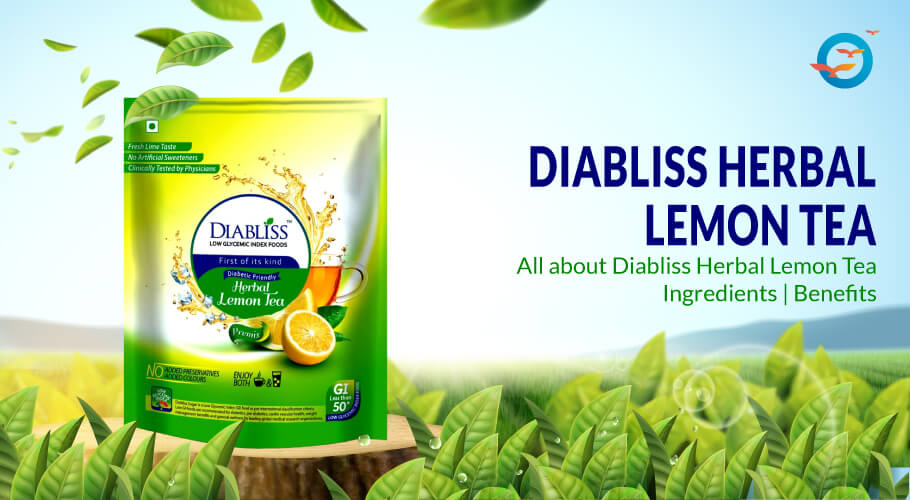Diabliss Herbal Lemon Tea

Can diabetics have tea?
Teas of various kinds have long been part of Indian culture, going as far back as the herbal teas of Ayurvedic tradition. In fact, India is the world’s second-largest producer of tea, and the largest tea-drinking nation, with over 60% of its 138 crore population being tea drinkers.
There are many benefits to drinking tea. Teas are anti-inflammatory and have been shown to boost one’s immunity system, as well as help prevent clogged arteries and heart disease, and even cancer. And of course, unless you’re a coffee drinker, nothing quite hits the spot like a cup of chai in the morning. And yet, if one is diabetic, there are certain drawbacks to be reckoned with.
Most pressingly, sweetening the tea with sugar or honey, as most people do, will affect blood sugar regulation, and worsen one’s condition. The addition of milk to tea— again, a common way of drinking tea— also decreases the insulin-sensitizing property of tea.
Tea benefits for diabeticsThis is, however, by no means a recommendation to leave tea behind. Instead, diabetic individuals and even people simply seeking to control their sugar consumption, can, and should, consider herbal tea.
Without the added sugar and milk, many types of teas can contribute to lowering blood sugar and improving the body’s sensitivity to insulin. There is no shortage of variety from which to make one's choice. For example, green tea has been shown to reduce inflammation as well as help control blood sugar levels.
As does black tea and chamomile, the latter of which also protects the body from oxidative stress. Or, if one prefers one’s teas sweetened, they may opt for cinnamon tea. Hibiscus tea has also been shown to reduce insulin resistance.
And if you are overwhelmed by choices or a little bit lost, don’t worry. "Diabliss’s herbal lemon teas" are as good a place as any to start. If the lemon flavor doesn’t work for you, you can choose from a variety of flavors including ginger, masala chai, and, of course, lemon.
Ingredients
1. Lemon
Studies suggest that herbal teas flavored with lemon juice can lead to reduced glucose synthesis and thus, reduced blood sugar levels. Lemon juice is also known to be able to fight inflammation, a common trigger for insulin resistance.
In addition to lemon other ingredients found in Diabliss’ Herbal Diabetes-Friendly Teas include pomegranate, black pepper, fenugreek, ginger, turmeric, and amla.
2. Pomegranate
Pomegranate is known to have a Glycemic Load of 18, and to contain compounds such as punicalagin, which have anti-diabetes effects.
3. Fenugreek
Fenugreek, perhaps better known as Methi, in India, has long been celebrated for its ability to lower blood sugar levels and is a staple in the kitchen as a vegetable and the seeds are a robust condiment.
4. Tumeric
Tumeric, or Haldi, as it is known across the Indian sub-continent, is another BSL regulating spice, in Diabliss’s herbal lemon tea. Turmeric is a powerful anti-inflammatory. If your grandmother made you apply Haldi powder to your bruises and scrapes, she was spot on! Ginger, meanwhile, when consumed in moderation, can help regulate insulin production.
5. Amla
Amla, along with keeping blood sugar under control, also promotes healthy weight loss and strengthens the immune system.
Conclusion
To conclude, while the tea comes with a great many benefits, it is not necessarily the best option for those with diabetes. However, herbal teas, are a good alternative, and going by customer reviews Diabliss can be said to be a healthy and tasty substitute.

